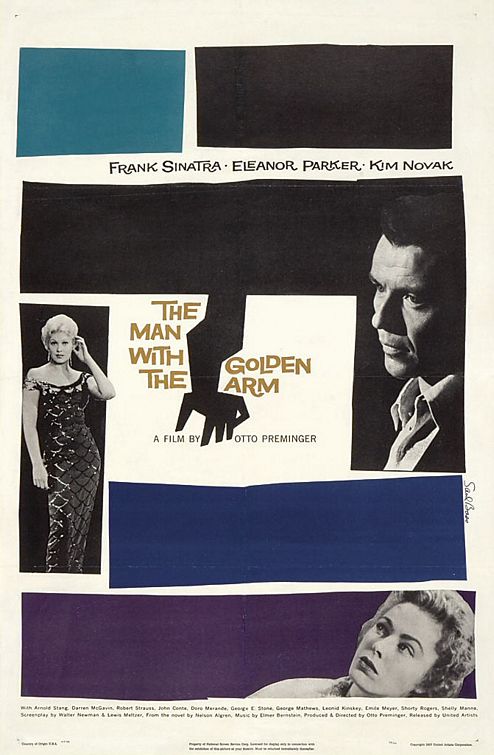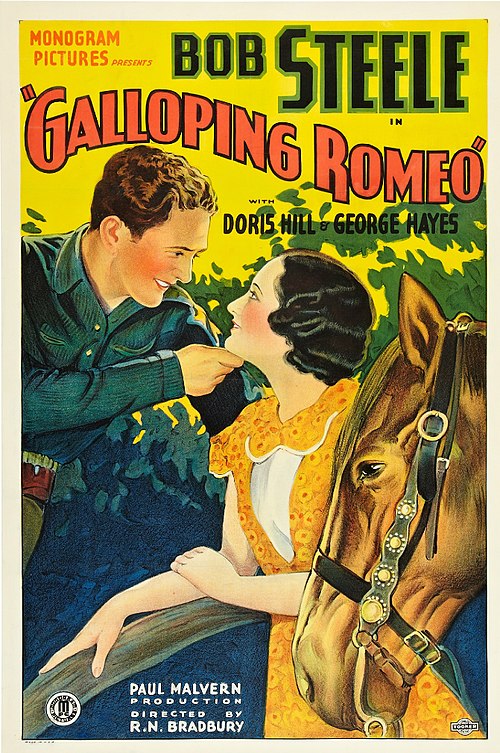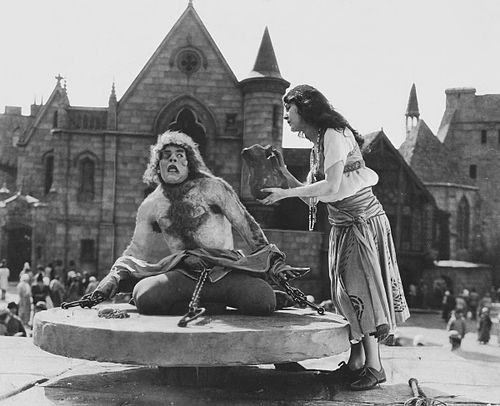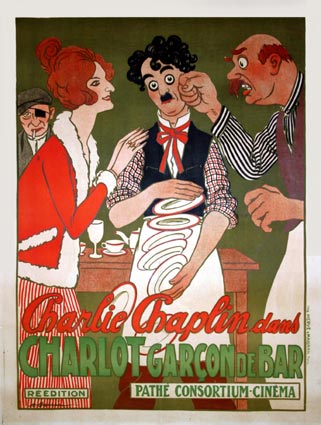
The Man with the Golden Arm
The Man with the Golden Arm is a 1955 American drama film with elements of film noir, based on the novel of the same name by Nelson Algren, which tells the story of a drug addict who gets clean while in prison, but struggles to stay that way in the outside world. Although the addictive drug is never identified in the film, according to the American Film Institute "most contemporary and modern sources assume that it is heroin", in contrast to Algren's book which named the drug as morphine. The film stars Frank Sinatra, Eleanor Parker, Kim Novak, Arnold Stang and Darren McGavin. It was adapted for the screen by Walter Newman, Lewis Meltzer and Ben Hecht (uncredited), and directed by Otto Preminger. The film's initial release sparked controversy due to its serious, in-depth treatment of the then-taboo subject of drug addiction.
It was nominated for three Academy Awards: Sinatra for Best Actor in a Leading Role, Joseph C. Wright and Darrell Silvera for Best Art Direction-Set Decoration, Black-and-White and Elmer Bernstein for Best Music, Scoring of a Dramatic or Comedy Picture. Sinatra was also nominated for best actor awards by the BAFTAs and The New York Film Critics. The film is in the public domain.
Plot
Frankie Machine (Frank Sinatra) is released from the Lexington Federal Medical Center with a set of drums and a new outlook on life, and returns to his run-down neighborhood on the North Side of Chicago. A drug addict (the drug is never named, but heroin is strongly implied), Frankie became clean in prison. On the outside, he greets friends and acquaintances. Sparrow (Arnold Stang), who runs a con selling homeless dogs, clings to him like a young brother, but Schwiefka (Robert Strauss), whom Frankie used to deal for in his illegal card game, has more sinister reasons for welcoming him back, as does Louie (Darren McGavin), Machine's former drug dealer.
Frankie returns home to his wife Zosh (Eleanor Parker), who is supposedly wheelchair-bound after a car crash some years earlier that was caused by Frankie driving drunk. Zosh is secretly fully recovered, but pretends to be unable to walk in order to keep making Frankie feel guilty so he will stay with her. Frankie comments on the whistle she wears around her neck, a device she used in Frankie's absence to summon a neighbor, Vi (Doro Merande), when needed. With Frankie home, Zosh smothers her husband in their small tenement apartment and hinders his attempt to make something of himself. He thinks he has what it takes to play drums for a big band. While calling to make an appointment, he bumps into an old flame, Molly (Kim Novak) who works in a local strip joint as a hostess and lives in the apartment below Frankie's. Unlike Zosh, Molly encourages his dream of becoming a drummer.
Frankie soon gets himself a tryout and asks Sparrow to get him a new suit, but the suit is a stolen one and he ends up back in a cell at a local Chicago Police Precinct. Schwiefka offers to pay the bail. Frankie refuses, but soon changes his mind when the sight of a drug addict on the edge becomes too much for him. Now, to repay the debt, he must deal cards for Schwiefka again. Louie is trying to hook him on drugs again, and with no job and Zosh to please, pressure is building from all directions.
Soon Frankie succumbs and is back on drugs and dealing marathon all-night card games for Schwiefka. Molly sees he is using drugs again and runs away from him. He gets a tryout as a drummer, but spends 24 hours straight dealing a poker game. Desperately needing a fix, Frankie follows Louie home, attacks him, and ransacks his house, but can't find his drug stash. At the audition, with withdrawal coming on, Frankie can't keep the beat and ruins his chance of landing the drumming job. When Louie goes to see Zosh to try to find Frankie, Louie discovers that Zosh has been faking her paralysis and can walk. Zosh, scared of being found out, pushes Louie over the railing of the stairwell to his death, but things backfire when Frankie is sought for Louie's murder.
Initially not realizing he is a suspect in Louie's death, Frankie goes to Molly hoping to get money for a fix. After learning that Captain Bednar and the police are looking for him, Molly convinces Frankie that he must go cold turkey if he is to stand a chance with the police. Frankie agrees and is locked in Molly's apartment where he goes through a grueling withdrawal to clear the drugs from his body. Finally clean again, he tells Zosh he is going to leave her, start anew and stand trial. In her desperation to keep Frankie from leaving her, Zosh once again gives herself away, standing up in front of Frankie and the police. She runs, but can get no farther than the outside balcony. Trapped, she blows the whistle and throws herself off the balcony to her death. A police ambulance then arrives to remove Zosh's lifeless body and drives away, while Frankie watches in dismay. He then walks away, with Molly following.
Cast
Frank Sinatra as Frankie "Dealer" Machine
Eleanor Parker as Sophia "Zosh" Machine
Kim Novak as Molly Novotny
Arnold Stang as Sparrow
Darren McGavin as "Nifty Louie" Fomorowski
Robert Strauss as Zero Schwiefka
John Conte as Drunkie John
Doro Merande as Vi
George E. Stone as Sam Markette
George Mathews as Williams
Leonid Kinskey as Dominowski
Emile Meyer as Captain Bednar
Shorty Rogers as himself (bandleader at audition)
Ralph Peña as himself (bassist at audition)
Shelly Manne as himself (drummer at audition)
Production
Screen rights to Algren's novel were first acquired in 1949 on behalf of John Garfield, who planned to star in the film version. However, production was delayed because the Production Code Authority (PCA) refused to approve the script, with Joseph Breen stating that the basic story was "unacceptable" because of the Code's prohibition on showing illegal drug trafficking and drug addiction. The ability to obtain PCA approval was critical because at that time, many movie theaters would not show films that had not received approval. The PCA further predicted that the subject would also be unacceptable to the National Legion of Decency (a Catholic film censor board), Federal authorities, and state and local censor boards in the United States and abroad. Garfield died in 1952 and director Otto Preminger acquired the rights from his estate.
Preminger had previously released The Moon Is Blue (1953), which succeeded at the box office despite being denied the Production Code seal of approval due to its sexual subject matter.[5] He told Peter Bogdanovich why he was attracted to Algren's novel: "I think there's a great tragedy in any human being who gets hooked on something, whether it's heroin or love or a woman or whatever."[8] Although United Artists (UA) had a distribution contract with Preminger, a clause in the contract allowed them to withdraw if a film failed to get Code approval. Preminger stated that in that event, he would set up his own company to handle distribution of The Man With The Golden Arm. Preminger continued to have problems with the PCA during the making of the film.
Although the novel's author, Nelson Algren, was initially brought to Hollywood to work on the screenplay, he and Preminger did not get along, and he was quickly replaced by Walter Newman. Preminger and Newman went on to make significant changes to Algren's original story, and the film was eventually released as "A Film By Otto Preminger". In 1956, Algren sued Preminger and others seeking an injunction to keep Preminger from claiming authorship of the film, but had to drop the suit because he could not afford the legal fees.
Frank Sinatra jumped at a chance to star in the film before reading the entire script. The script was given to Marlon Brando around the same time as Sinatra, who still harbored some anger at Brando for beating out Sinatra for the lead role in On the Waterfront. To prepare for his role, Sinatra spent time at drug rehabilitation clinics observing addicts going cold turkey. He also learned to play drums from drummer Shelly Manne. The picture was shot in six weeks at RKO Studios in Hollywood from September 26 through November 4, 1955.
Saul Bass designed the crooked arm symbol used in the film's advertising campaign, which Preminger liked so much that he threatened to pull the picture if an exhibitor changed the advertisements. Bass also created the animated title sequence for the film, the first of many such sequences that he created for films by Preminger, Alfred Hitchcock, and others.
Controversy over release
Preminger decided to release the finished film prior to submitting it for a Code seal of approval. He contended that his film would not entice any viewers to take drugs, since drug use was depicted as having severely negative consequences. United Artists, which had invested $1 million in the film's production, opted to distribute the film, even though doing so could result in the company being fined $25,000 by the Motion Picture Association of America (MPAA). The president of United Artists, Arthur Krim, expressed the company's hope that the PCA would make an exception to its usual rules and grant the film approval because of the film's “immense potential for public service.” The film received several advance bookings in November and early December 1955, before the PCA had made a decision on whether to grant a Code seal.
However, in early December 1955, the PCA denied the film a Code seal, and the decision was upheld upon appeal to the MPAA. As a result, United Artists resigned from the MPAA that same month (although the company re-joined a few years later). The National Legion of Decency also showed disagreement with the PCA ruling by rating the film as a "B" meaning "morally objectionable in part for all", instead of a "C" meaning "condemned", which was the rating normally given to films that were denied a Code seal. Large theater circuits including Loews also refused to ban the film and instead showed it despite the lack of a Code seal. As a result of the controversy, the MPAA investigated and revised production codes, allowing later movies more freedom to deeply explore hitherto taboo subjects such as drug abuse, kidnapping, miscegenation, abortion, and prostitution.
In the end, The Man With The Golden Arm finally received the Production Code seal number 17011 in June 1961, which permitted the film to be reissued and sold for television broadcast.




